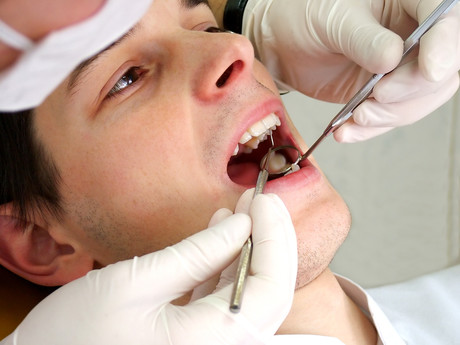'We can. I can' tackle oral cancer

Three Australians are diagnosed with oral cancer every day. The Australian Dental Association (ADA) is trying to raise awareness about oral cancer, which forms part of the estimated over 130,000 Australians diagnosed with cancer each year.1
Dr Michael Foley, vice chair of the ADA’s Oral Health Committee, said, “When Australians think of cancer it does not immediately come to mind that cancer can occur in the mouth. However, certain habits can increase a person’s risk of developing oral cancer — such as tobacco and alcohol, which increases that risk by more than 80%. Heavy tobacco and alcohol consumers increase their risk by 38 times compared to those who do not consume these products.2 Oral cancer can also be caused by the human papilloma virus (HPV) obtained from unprotected oral sex.
“If picked up early, oral cancer can be addressed relatively well — an 85% 5-year survival rate. However, the sad reality is that oral cancer is typically detected when advanced, where the 5-year survival rate can be as low as 9%.3
The theme for World Cancer Day 2016–18, held 4 February, is ‘We can. I can’, conveying the message that as individuals, families, communities and at the governmental level we all can take action to reduce the impact of cancer.
Symptoms of oral cancer to keep an eye out for:
- A sore, irritation, lump or thick patch in the mouth, lip, or throat that does not go away.
- A chronic ulcer or blood blister in the mouth that does not heal.
- Difficulty chewing, swallowing, moving the jaw or tongue.
- Prolonged swollen glands.
- Difficulty speaking or a change in the voice.
- Numbness in the tongue or other areas of the mouth.
- Swelling of the jaw that causes dentures to fit poorly or become uncomfortable.
Dr Foley concluded: “60% of oral cancers are already advanced when they are detected — we can dramatically lower this rate ... with simple lifestyle changes.” These include:
- Limit alcohol intake.
- Quit smoking, including e-cigarettes and water pipes.
- Practice safe oral sex.
- Avoid prolonged sun exposure and wear lip balm with SPF sun protection.
- Eat fresh fruits and vegetables every day.
- Maintain good oral hygiene.
- Visit the dentist regularly for a checkup — as early detection can reduce the impact of the cancer.
References
1. http://www.cancer.org.au/about-cancer/what-is-cancer/facts-and-figures.html
2. Warnakulasuriya, S., ‘Review: Global epidemiology of oral and oropharyngeal cancer’, Oral Oncology, 45 (2009) 309-316.
3.ARCPOH, ‘Oral cancer: Early Detection Saves Lives’, https://www.adelaide.edu.au/arcpoh/dperu/special/Oral_cancer/Oral%20Cancer%20%20A3.pdf accessed on 30 January 2017, 2.52 pm.
Medicine shortages are testing Australia's health system and clinicians need national support
Medicine shortages are no longer isolated supply disruptions. They are escalating and directly...
Mindfulness and endoscopies — a more effective combination?
A UK study involving 231 patients has advocated 'mindful endoscopy' — allowing...
How do different types of pain influence empathy?
Different types of pain influence how unpleasantly we perceive it but also how we empathise with...




![[New Zealand] Transform from Security Awareness to a Security Culture: A Vital Shift for SMB Healthcare — Webinar](https://d1v1e13ebw3o15.cloudfront.net/data/89856/wfmedia_thumb/..jpg)
![[Australia] Transform from Security Awareness to a Security Culture: A Vital Shift for SMB Healthcare — Webinar](https://d1v1e13ebw3o15.cloudfront.net/data/89855/wfmedia_thumb/..jpg)



